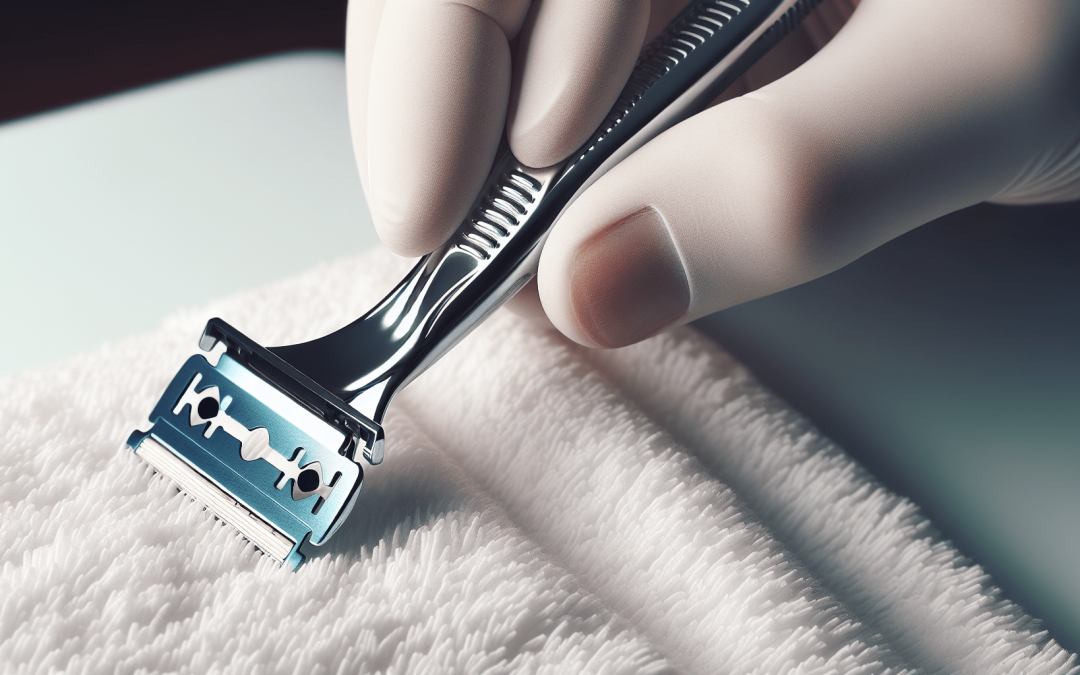If you’re gearing up for a medical procedure on your head, you might be wondering if you need to shave your head before going under the knife. While it ultimately depends on the specific procedure you’re having done, shaving your head might not always be necessary. It’s always best to consult with your healthcare provider to get the most accurate information tailored to your individual circumstances. “Do I Need To Shave My Head Before The Procedure?”
So you’ve decided to undergo a medical procedure, but you’re unsure if you need to shave your head beforehand. This article will answer all your questions and help you prepare for the procedure without any confusion.
Why is it important to shave your head before a procedure?
Shaving your head before a medical procedure is often necessary for a few reasons. It allows medical professionals easy access to the treatment area, reduces the risk of infection, and ensures that any necessary devices or equipment can be attached securely.
So your hair might be getting in the way during the procedure, and shaving your head can help ensure that everything goes smoothly.
How should you shave your head before a procedure?
If you do need to shave your head before a procedure, it’s essential to do it correctly to avoid any skin irritation or cuts. Here are some steps you can follow to shave your head effectively:
- Start by trimming longer hair with scissors
- Use a high-quality razor or electric shaver to shave your head
- Apply shaving cream or gel to the area to help reduce irritation
- Shave in the direction of hair growth to prevent ingrown hairs
- Rinse your head with warm water and apply a soothing aftershave balm or lotion
Following these steps can help you achieve a clean shave without causing any discomfort or skin issues.
Should you ask a professional to shave your head?
If you’re not confident in your shaving skills or want to ensure that everything is done correctly, you can always ask a professional to shave your head for you. Barbers and hairdressers have experience in handling different hair types and can help you achieve a smooth and even shave.
So if you’re unsure about shaving your head on your own, don’t hesitate to seek the help of a professional.
Will your hair grow back after the procedure?
One common concern people have is whether their hair will grow back after shaving it for a procedure. The good news is that in most cases, hair will grow back within a few weeks to a few months, depending on individual hair growth rates.
So you don’t have to worry about losing your hair permanently, as it will typically grow back after the procedure is completed.
How to care for your scalp post-procedure
After the procedure is done, it’s essential to take care of your scalp to promote healthy hair growth. Here are some tips to help you care for your scalp:
- Keep your scalp clean by washing it regularly with a mild shampoo
- Avoid using harsh chemicals or styling products on your hair
- Massage your scalp regularly to improve blood circulation
- Eat a balanced diet rich in vitamins and minerals to support hair growth
- Protect your scalp from the sun by wearing a hat or using sunscreen
Following these tips can help ensure that your hair grows back healthy and strong after the procedure.
Are there any alternatives to shaving your head before a procedure?
In some cases, shaving your head before a procedure may not be necessary. Some alternatives can be considered depending on the type of procedure and the area being treated. Here are a few alternatives to consider:
- Using hair removal creams: Hair removal creams can help dissolve hair at the root without the need for shaving.
- Trimming the hair short: Instead of completely shaving your head, you can trim your hair short to make it easier for medical professionals to access the treatment area.
- Covering the hair with a surgical cap: In some cases, wearing a surgical cap may be sufficient to keep hair out of the way during the procedure.
Discuss these alternatives with your healthcare provider to determine the best option for your specific situation.
Is there a risk of complications if you don’t shave your head?
While not shaving your head before a procedure may not always lead to complications, there are some risks to consider. Hair in the treatment area can interfere with medical devices or equipment, increase the risk of infection, and make it challenging for medical professionals to perform the procedure effectively.
So it’s essential to follow the recommendations of your healthcare provider to ensure the best possible outcome for the procedure.
In conclusion
Now that you have a better understanding of whether you need to shave your head before a medical procedure, you can make an informed decision and prepare accordingly. Remember to follow the recommendations of your healthcare provider and take care of your scalp post-procedure to promote healthy hair growth.
So whether you choose to shave your head or explore alternative options, make sure to prioritize your comfort and well-being throughout the process.

